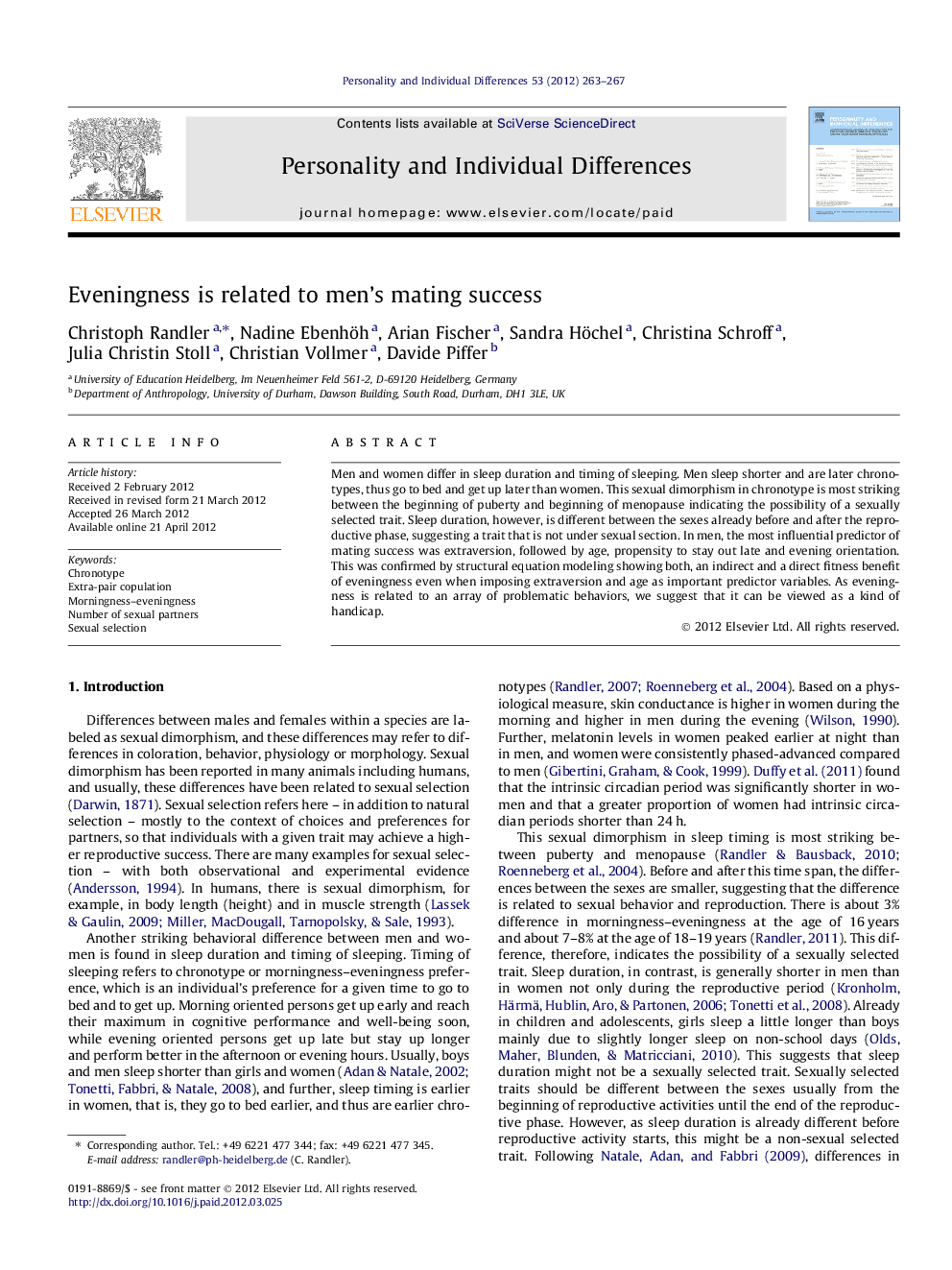| Article ID | Journal | Published Year | Pages | File Type |
|---|---|---|---|---|
| 891011 | Personality and Individual Differences | 2012 | 5 Pages |
Men and women differ in sleep duration and timing of sleeping. Men sleep shorter and are later chronotypes, thus go to bed and get up later than women. This sexual dimorphism in chronotype is most striking between the beginning of puberty and beginning of menopause indicating the possibility of a sexually selected trait. Sleep duration, however, is different between the sexes already before and after the reproductive phase, suggesting a trait that is not under sexual section. In men, the most influential predictor of mating success was extraversion, followed by age, propensity to stay out late and evening orientation. This was confirmed by structural equation modeling showing both, an indirect and a direct fitness benefit of eveningness even when imposing extraversion and age as important predictor variables. As eveningness is related to an array of problematic behaviors, we suggest that it can be viewed as a kind of handicap.
► Eveningness is higher in men than in women, and we suppose some kind of sexual selection. ► Eveningness in men is related to mating success, even when controlling for going out behavior, age and extraversion. ► The higher mating success in evening men might be a result of extra-pair copulations and short term relationships.
